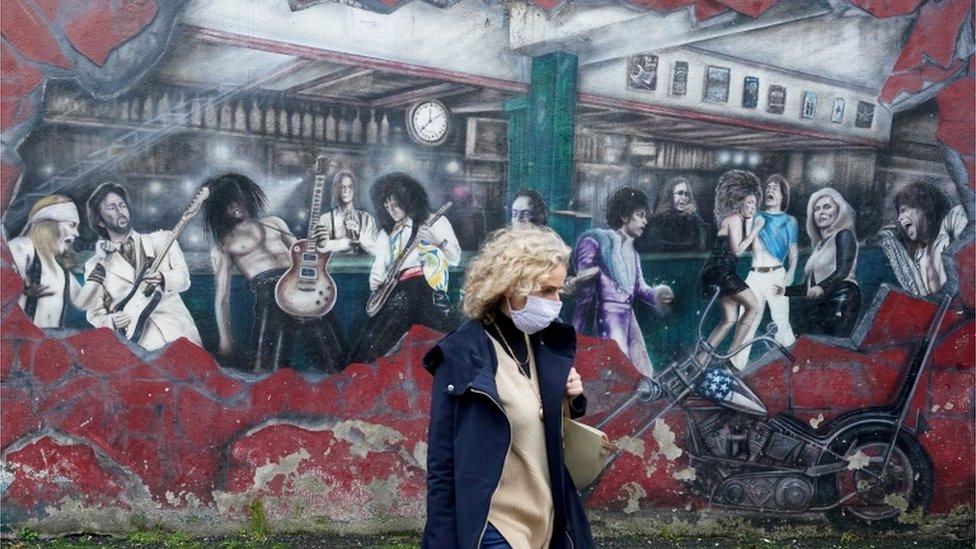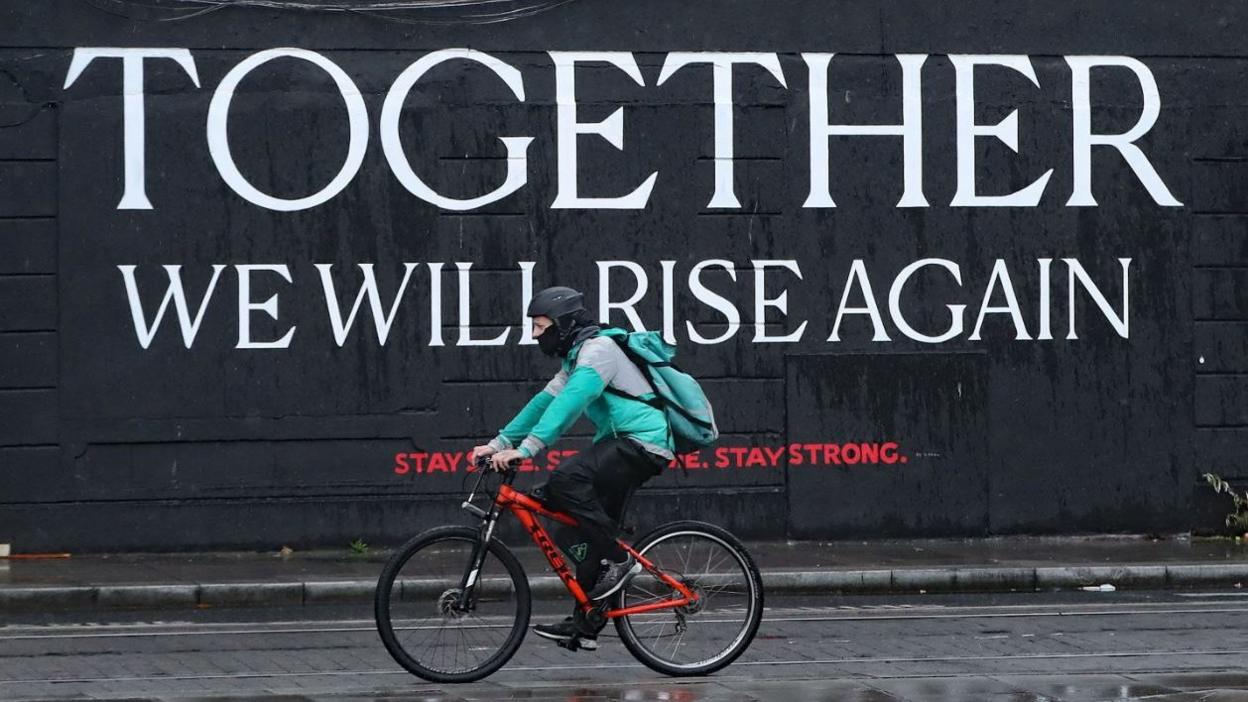Coronavirus: Republic of Ireland moves to highest restrictions
- Published

The new rules will apply nationally and will last for six weeks, with a review after four
The Republic of Ireland has now been moved to its highest level of coronavirus restrictions in a bid to curb the spread of the virus.
The move took effect from midnight on Wednesday after the Irish cabinet agreed to impose level five restrictions.
They are the highest in the country's alert system and will last for six weeks, with a review after four.
Those who breach the new rules could face spot fines of up to €500 (£455).
The legislation will mean fines for people hosting house parties and those travelling beyond the 5km travel limit, with exemptions for essential work and essential purposes.
However, they will not be in place for Thursday when new restrictions take affect.
The current penalty of €2,500 (£2,285) or up to six months in prison will apply for travel restriction breaches until the new law is passed.
The country reported three Covid-19 related deaths on Wednesday and 1,167 new cases.
Some 314 people are in hospital, 34 of which are in intensive care.
What are the new rules?
People are being asked to stay at home. Those who can work from home must do so
People will be able to meet up outdoors with one other household away from their home for the likes of exercise, within the 5km limit
No social or family gatherings are allowed in homes or gardens, but visits on compassionate grounds and for caring purposes can continue
Those living alone or parenting alone will be able to pair with another household as part of a "support bubble".
Many non-essential shops and hairdressers will have to close
Bars and restaurants will only be able to provide a takeaway service
The number of wedding guests permitted will remain at 25 until the end of the year
Up to 10 mourners can attend a funeral
Elite sporting events can take place
Most manufacturing will remain open
Taoiseach (Irish PM) Micheál Martin said he accepted the new restrictions would create anxiety and uncertainty but said protection of the public health was paramount.
The restrictions are similar to those which were in place in spring, but with schools remaining open.
Irish Minister for Justice Helen McEntee said people would always be given a chance to comply with the restrictions and fines would only be used as a last resort.
Up until now the vast majority of people have complied and there have been very few incidents where fines have been issued, she added.

CIRCUIT BREAKERS: When will we know if they are working?
SOCIAL DISTANCING: What are the rules now?
FACE MASKS: When do I need to wear one?
NI RESTRICTIONS: Your questions answered on the most recent changes

- Published19 October 2020
